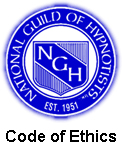
by Brenda Titus
As hypnotists, especially those who practice 5-PATH®, our job is to get to the root of the client’s problem, aid them in seeing it through a new perspective, neutralize the misperceptions associated with this root cause, help them give a voice to their anger, and ultimately help them heal through forgiveness work. This is deep transformational work which is extremely personal and is often very spiritual. Because we work with the subconscious mind, we get to the heart of the matter very rapidly, much faster than traditional hypnotic interventions. I have worked with many clients who have told me that I know more about them in a matter of a session or two than their closest friends or even their spouse. In order to effectively accomplish our work with our clients, it is vital that we develop rapport and trust with them very quickly while maintaining healthy, professional boundaries. Developing these boundaries as a business model within your hypnosis practice will aid your client’s success, help your business grow, and will even give you some peace of mind. I bring many of my philosophies about setting firm boundaries with clients from my 15 years of working within a Rape Crisis Center along with experiences that I have had with my clients while working at the Banyan Hypnosis Center over the last year.
First impressions:
Whether on the phone or in person, you set the tone for your relationship during your initial interaction with your client. While you want to be friendly, approachable, and available, it is important that you maintain your professionalism by setting clear boundaries and expectations with your clients right from the beginning. This way, they know what to expect when they work with you.
Phone and email communication: It is common practice for hypnotists to run their business phone lines through their cell phones, providing availability 24 hours a day, 7 days a week. While it is important to be available to speak to potential clients on the phone as soon as possible when they call you, it is also important that you set a clear expectation about what is appropriate for your communication with them. As part of your business model, make a decision about accepting calls or responding to emails on the weekend or in the evening. Set healthy limits for yourself, and follow them. Just as important as the time of day, or the day of the week, it is important that you are in a position to speak with potential clients without outside noise or distractions. If you are out grocery shopping or otherwise unavailable to truly speak to the caller in a professional manner, let the call go to voicemail and return the message as soon as you are able to do so. The call is extremely important to the caller- they have made a very important decision to seek help, and they may choose you to assist them. While waiting might impact their decision, speaking to you when you are scattered, the dog is barking in the background, or you are in the middle of the produce section will definitely impact their decision to schedule an appointment with you! By keeping business hours and taking calls only when you are able to do so in a professional manner, you maintain a level of professionalism in your practice which will aid you in your work with your clients, and you also give yourself an important break, a symbolic separation from your “work self” and your “home self.”
Handling personal questions: While hypnosis is growing in popularity, many callers have already seen multiple doctors or received chiropractic care, acupuncture, and other alternative modalities to overcome their issue. Because hypnosis is an out of the norm treatment, callers may have additional questions about you specifically as their potential hypnotist. Aside from typical questions such as your success rate or how long you have been a hypnotist, they may ask questions about your personal life- your religion, whether you have ever personally experienced the issue that they are coming to see you for, or once, I was asked by a caller if I was psychic. It is your response to receiving these questions, along with how you choose to respond to them, that will continue to set the tone for your ongoing interactions with this client. Remain calm and confident in your ability to help them. Focus on your qualifications and experience in a way that allows you to maintain your professionalism without discussing your personal life.
Limit personal items in your office space: At some point in your interactions with your clients, they will realize that you know so much about them, yet they know very little about you. While this may seem one-sided, that is the point of a professional relationship, especially one that can focus on the intense issues that are focused on during hypnosis. Use caution with personal photographs or other expressions of your personal life in your office. Make sure that they are professional and appropriate for the setting, and limit your use of photographs of your friends and family, especially children. Limiting your personal expression within your office will help you maintain firm and healthy boundaries with your clients, which will help them keep their focus on their work with you.
Ongoing work with your clients:
Once you begin your work with your client, the intensity of the relationship builds as you develop an intimate level of knowledge about who they are and why they behave the way that they do. For some clients, this can create transference relationships, as they begin to see you as the key that unlocks elements of themselves that they didn’t understand before they began seeing you. You may provide a level of nurturing or support that they’ve always lacked that could become unhealthy without maintaining professional boundaries. Maintaining the boundaries that you have set with your clients is just as important as setting initial boundaries, if not more important.
Set limitations on communication outside of session: Each week I send my clients home with the same reminder: “Let me know if you need anything during the week.” If something comes up in between our sessions, I would much rather spend some time discussing it with them over the phone to clear things up rather than have them thinking about it all week, especially if it is something that I can answer pretty quickly and give them some relief from any concerns that come up. I highly recommend allowing brief communication in between sessions as needed, with strict limitations on the amount of time, the topic of discussion, and an adherence to business hours in order to maintain your professional relationship. The point of these discussions is to answer any questions that the client has regarding the work that you are doing together. It is not to counsel or provide ongoing support or guidance. It is very important to maintain limitations for two reasons. First, if you are not a hypnotist or life coach, providing this level of support outside of a hypnosis session is outside of the boundaries of your qualifications. Second, too much communication outside of the parameters of a blocked out session time or communication during the evenings or weekends creates the illusion of a personal relationship rather than a professional one, which can create difficulties for both your client and for you.
Do not meet with clients (or potential clients) in a casual, public setting: This is especially important for those who share office space, but it’s a good boundary to set for all hypnotists. I’ve had clients ask to meet me at a coffee shop or other location for a consultation on days that I am not in my hypnosis office, to which I have firmly replied “no.” Much like in the point above about limiting communication in between sessions, meeting with a client in a casual setting removes the professional boundary that you have established and creates the illusion of a personal relationship. This opens up the pathway to push past professional boundaries and limitations of your role as a hypnotist as well. Be consistent about session timing: Establish a goal for your sessions and give your client a clear expectation of how long your sessions will last. Explain that your sessions may sometimes go a little over or under, and then follow-through accordingly. If you are not able to accomplish your goal within the timeframe set aside, complete the session anyway. Your client may have childcare or work issues to attend to that you are not aware of, which is why it is important to maintain this boundary with them.
Maintain your cancellation/reschedule policy throughout all sessions: It is important to have a set cancellation policy for your practice that you consistently follow. Just as it is important for you to be clear about your initial cancellation/no show policy for new clients, it is vital to maintain that policy throughout all of your sessions with an ongoing client. While it is up to you to be flexible with clients who have emergencies, I highly recommend setting expectations and having clear communication with your clients about making exceptions to your policy when you do so that they do not continue to reschedule their appointments.
Maintain personal space boundaries: It is important to maintain your professional stance when greeting and saying goodbye to your client each session. My rule is to never initiate a hug, but be open to receiving one if it is offered. A handshake and a warm hello (or goodbye) helps maintain the professional distance necessary with your client.
When personal and professional lives collide….Some things to think about:
Think about what you would do if you run into a client in public: What do you do if you see a client when you are “out and about” living your life? What if your client is a friend of a friend or you live in a small town and run-ins with clients are a regular occurrence? As part of your business model, I recommend thinking about what you would do in these situations so that you can be best prepared to handle them when they come up. When I am aware that I might see a client in public because of common interests or because they are a friend of a friend, I make it a point to discuss it with them so that they know that I will maintain their confidentiality and will not acknowledge that I know them as a client if I see them in a public setting.
Set professional boundaries for networking and social media: In our modern world, we are connected to others like never before. You might get connection requests on your LinkedIn or a friendship request on Facebook from a client. While these are great ways to network and receive referrals, it can also blur the boundaries between a personal and professional relationship. Consider creating a professional Facebook account where you can promote your business without including your personal photos or information about your personal life. Ensure that your online interactions, even on your personal page with friends and family, promotes your business in a positive light- you never know who might be looking and refer a friend accordingly.
Do what makes sense for you in your business
Several factors go into making sound decisions about professional boundaries for your hypnosis practice. The size of your community, your business style, and where you network for client referrals may all come into play. As you set boundaries for your clients, some may try to push past them. Some people are not used to having boundaries and will not know how to respond. As you show your ability to set boundaries with your clients, they will learn valuable life lessons about how to set boundaries with others as well.





